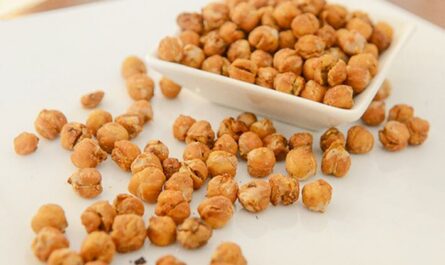Persimmons are sweet, tasty fruits that become ripe and ready for picking during the fall season. Their sweet, honey-like flavor makes them an appealing snack for us humans. As you enjoy this seasonal fruit, it’s natural to wonder if you can share a few ripe persimmons with your canine best friend as well.
Table of Contents
ToggleSo, can dogs eat persimmons? The short answer is yes, dogs can safely eat persimmons. Persimmons are not toxic or poisonous to dogs when given in moderation. However, there are some risks with feeding dogs persimmons. In this comprehensive guide, we will dive into all the specifics around feeding persimmons to dogs.
What Are Persimmons?
Persimmons are a bright orange berry fruit that grows on trees native to China and other parts of Asia. The trees produce large, colorful fruit with a firm, juicy pulp inside. While not as widely available in Western countries, persimmons are a popular snack across Asia.
There are over 400 varieties of persimmon, but two main types are commonly consumed:
Hachiya Persimmons is the most widely cultivated persimmon. Hachiya persimmons are heart-shaped with a pointy, acorn-like bottom. When ripe, they become extremely soft with an almost jelly-like consistency.
Fuyu persimmons are shorter and wider than the hachiya variety. They have a characteristic squat, tomato shape.
Unlike other persimmons, fuyu persimmons maintain a firm, crisp texture even when fully ripe. They can be enjoyed while still slightly crunchy. The flesh ranges from orange to deep red.
Are Persimmons Toxic to Dogs?
The first question many dog owners have is whether persimmons are toxic and poisonous to dogs. The good news is that persimmons are non-toxic for dogs. Both wild and cultivated persimmon varieties are safe for dogs to consume.
According to the ASPCA, all parts of the ripe persimmon fruit are completely dog-safe. The fleshy pulp, the jelly-like internal texture, the skin, and even the seeds of very ripe persimmons do not pose any toxic dangers.
However, there are a few caveats on safety depending on ripeness. Unripe and overripe persimmons can cause gastrointestinal issues, especially if the seeds and skin are eaten.

Nutritional Value of Persimmons for Dogs
Persimmons not only make a safe, non-toxic treat for dogs, but they also contain beneficial nutrients.
Here is a table summarizing the nutritional value of persimmons for dogs:
| Nutrient | Benefit |
|---|---|
| Vitamin A | Supports healthy vision, bone growth, reproduction, and immune function |
| Vitamin C | Boosts immune system, antioxidant protection, iron absorption |
| Dietary Fiber | Promotes digestion, gut health, regularity |
| Manganese | Aids bone/tissue growth, metabolism, enzyme function |
| Potassium | Regulates fluid balance, nerve transmission, muscle function |
| Copper | Essential for iron metabolism, nerve health, immune support |
| Antioxidants | Removes cell-damaging free radicals, reduces inflammation |
| Carotenoids | Antioxidant protection, vision/skin/coat health |
| Tannins | Anti-inflammatory, antioxidant effects |
Health Benefits of Feeding Dogs Persimmons
Beyond a sweet and tasty treat, persimmons offer several science-backed health benefits for dogs:
1. Antioxidants
Persimmons are rich in antioxidants like vitamin C, beta-carotene, lycopene, lutein, and cryptoxanthin. These antioxidants prevent and neutralize cell damage caused by free radicals throughout the body.
Consuming persimmons can reduce inflammation, boost immunity, prevent heart disease and cancer, support healthy aging, and protect vision health. The tannins in persimmons also have antioxidant effects.
2. Bone Growth & Strength
The high vitamin A content in persimmons plays a key role in regulating bone growth and maintaining strong, healthy bones over a dog’s lifetime. Vitamin A aids the process of osteoblasts forming new bone and osteoclasts remodeling old bone.
It also supports bone mineralization for improved bone density and strength. Just one persimmon can meet over 100% of a dog’s recommended daily vitamin A needs for proper skeletal development.
3. Digestion & Gut Health
The soluble fiber and tannins in persimmons can aid digestion in dogs. The fiber helps move food through the GI tract, absorb excess moisture, and prevent issues like diarrhea or constipation.
It also acts as a prebiotic to feed healthy gut bacteria, leading to more beneficial fatty acid production and prevents the overgrowth of bad bacteria.
Additionally, the tannins have an anti-inflammatory effect on the stomach and intestines. All of these digestion benefits reduce stomach issues and maintain good gut health.
4. Nutrient Profile
Persimmons offer an impressive array of vitamins, minerals, and other nutrients like vitamin B6, magnesium, potassium, manganese, copper, phosphorus, and more.
These nutrients boost metabolism, assist with red blood cell formation, strengthen immune function, regulate fluid balance, aid muscle and nerve activities, and provide overall energy. Persimmons also have high levels of the amino acid beta-carotene, which promotes vision, skin, coat, and tissue health.
5. Allergy & Inflammation Relief
The antioxidants vitamin C, cryptoxanthin, and especially quercetin in persimmons have natural antihistamine and anti-inflammatory effects. Quercetin stops the release of histamines to prevent allergy symptoms.
The antioxidants also reduce swelling, itching, and other inflammatory responses. So adding persimmons to a dog’s diet may help relieve seasonal environmental or food allergies as well as arthritis, joint pain, and other inflammatory issues.

Risks and Side Effects of Persimmons for Dogs
While ripe persimmons are safe for dogs to eat, too many can cause some digestive issues. Additionally, unripe persimmons pose more risks for dogs. Being aware of these side effects helps prevent negative reactions.
1. Gastrointestinal Problems
The most common side effect is gastrointestinal upset like diarrhea, vomiting, or constipation. Too much fiber, sugar, or acidic fruit can irritate a dog’s digestive tract. Gulping down persimmon skin, seeds or flesh also expands in the stomach.
Feeding a few ripe persimmon slices is ok. But excessive portions, particularly if dogs eat them too fast, may cause:
- Stomach cramps
- Diarrhea
- Constipation
- Vomiting
- Intestinal gas
- Abdominal pain
If your dog experiences diarrhea or vomiting after overindulging in persimmons, withhold food for 12-24 hours. Then slowly reintroduce bland foods like rice or chicken.
2. Intestinal Blockage
Persimmon skin, seeds, or leaves can cause intestinal obstructions or blockage if swallowed. Chewing well minimizes this risk. But dogs gulping down large pieces of skin or seeds can experience:
- Loss of appetite
- Vomiting
- Diarrhea
- Abdominal pain
- Constipation
- Bloated stomach
Intestinal blockage is life-threatening, so prompt vet care is needed if symptoms arise. Surgery may be required to remove the obstruction.
3. Unripe Persimmon Risks
Another critical risk is feeding dogs unripe persimmons. Unripe persimmons contain higher levels of tannins. While ripe persimmons lose tannins as they soften, these remain very high in unripe fruit. When dogs ingest high tannin levels, it can cause:
- Oral irritation
- Damage to gums and tissue
- Excess drooling
- Difficulty swallowing
- Potential choking hazard from damaged esophagus
How to Feed Persimmons Safely?
Follow these steps to safely feed ripe persimmons to your dog:
Step 1: Wash Thoroughly
Rinse persimmons under cool running water to remove any dirt, debris, or residues on the skin. Gently scrub with your hands as needed. Washing prevents any contaminants from being accidentally ingested.
Step 2: Remove Stems and Leaves
Cut off the leafy tops and stems with a paring knife. These plant parts are tough to chew and may cause choking or internal damage.
Step 3: Scoop Out All Seeds
Slice each persimmon in half. Use a spoon to scoop out and discard the black seeds. Seeds can lead to dangerous intestinal obstruction or perforation.
Step 4: Cut Out the Pit
Carefully slice off the woody central pits using a sharp knife. The pits pose a significant choking hazard or blockage risk if swallowed.
Step 5: Chop the Flesh
Cut the prepared persimmon pulp and skin into small bite-sized cubes. Smaller pieces are safer and easier for dogs to chew and digest.
Step 6: Mix with Regular Food
Combine a few chopped persimmon pieces with your dog’s regular meal. This allows your dog to enjoy the sweet flavor while limiting overconsumption.
Step 7: Monitor Closely
Watch your dog closely when first feeding persimmons. Stop immediately if you notice signs of choking or GI distress.
Step 8: Feed Ripe Persimmons
Only feed dogs soft, fully ripe persimmons. Underripe persimmons are too hard and contain higher levels of tannins that may cause stomach upset. The flesh should be soft and orange or red when ripe.
Step 9: Control Portions
To avoid diarrhea or weight gain, limit your dog to just 1-2 pieces of chopped persimmon at a time. Start with a tiny amount and increase slowly over days.
Step 10: Avoid Overdoing It
While healthy in moderation, too many persimmons can lead to excess fiber, sugar, or allergens. Persimmons should only be an occasional fruit treat, not a daily part of your dog’s diet.

How Much Persimmon Can Dogs Eat?
When feeding persimmons to dogs, less is often more. While non-toxic, too many persimmons could lead to gastrointestinal issues or weight gain in your pup. Follow these dosage tips:
Based on the search results, here is a table summarizing how much persimmon dogs can eat:
| Dog Size | Daily Serving | Frequency |
|---|---|---|
| Small Dogs (up to 25 lbs) | 1-2 small cubes | 1-2 times per week |
| Medium Dogs (25-50 lbs) | 2-3 cubes | 2-3 times per week |
| Large Dogs (over 50 lbs) | 4-5 cubes | 3-4 times per week |
The table shows recommended daily serving sizes for persimmons based on the dog’s weight, along with suggested frequency. Small dogs up to 25 lbs can have 1-2 small cubes, 1-2 times per week.
Medium dogs between 25-50 lbs can have 2-3 cubes, 2-3 times weekly. Finally, large dogs over 50 lbs can have 4-5 cubes, 3-4 times per week.
Monitor your dog’s body condition and stool consistency when adding this fruit. Increase or decrease the amount based on your individual dog’s response. Healthy digestion is the #1 priority.
If your dog experiences any diarrhea, vomiting, or other negative reactions, stop feeding immediately. Allow the stomach to rest for 12-24 hours, then reassess. Some dogs may have sensitivities to persimmons.
Signs of Trouble in Dogs After Eating Persimmons
In rare cases, dogs may experience stomach upset or other negative reactions after eating persimmons. Here are some troubling symptoms to watch for:
- Decreased appetite or disinterest in food
- Nausea, drooling, or vomiting
- Diarrhea or very loose, watery stool
- Straining or difficulty passing stool
- Abdominal bloating, pain, or distension
- Choking, gagging, or retching motions
- Lethargy, weakness, or tiredness
- Itchy skin, rashes, or hives
If you notice any of these warning signs after feeding persimmons, stop giving your dog any more of the fruit. Withhold all food for 12-24 hours to allow the GI tract to rest.
Can Puppy Dogs Eat Persimmons? What About Senior Dogs?
Puppy dogs can eat persimmons, but it’s essential to introduce this fruit to their diet cautiously and in moderation. The same applies to senior dogs.
For puppies, whose digestive systems are still developing, it’s particularly important to ensure that any new food is introduced slowly and in small quantities to avoid stomach upset. Similarly, senior dogs may have more sensitive digestive systems or specific dietary needs, so caution is also advised when offering them persimmons.
In both cases, it’s recommended to follow the 10% rule, where treats, including persimmons, should not exceed 10% of the dog’s daily caloric intake.
Can Dogs Eat Persimmon Skin, Seeds, Leaves?
While the pulp of ripe persimmons is safe for dogs, other parts of the fruit and tree are hazardous if eaten. It’s critical to know what dogs can and cannot eat.
1. Persimmon Skin
The skin of ripe persimmons is harmless for humans to eat. But dogs should avoid eating the skin since it can cause intestinal blockages or issues digesting.
The skin also contains higher tannins. So for the dog’s safety, always peel persimmons before feeding them.
2. Persimmon Seeds
The small black seeds in ripe persimmons also pose a danger for dogs. Persimmon seeds can cause intestinal obstructions blocking the gastrointestinal tract.
While chewing minimizes this, it’s still possible for seeds to get lodged. So always remove the seeds first.
3. Persimmon Leaves, Stems, and Bark
Finally, the leaves stems, branches, and bark of the persimmon tree contain toxic elements unsafe for dogs. Parts of the persimmon plant like leaves and bark contain tannins and other substances dogs cannot digest.
Ingesting any foliage or wood from a persimmon tree can irritate a dog’s digestive system. Poisoning symptoms like vomiting or diarrhea may occur if dogs eat bark, stems, or leaves. So while ripe pulp is ok, make sure dogs avoid all other persimmon parts.
Are Dehydrated or Dried Persimmons Safe for Dogs?
Beyond fresh persimmons, many people enjoy dried persimmons as a chewy, sweet snack. So can our canine companions also eat dried persimmons?
The answer is yes, dogs can eat dried persimmons safely in moderation. The dehydration process doesn’t introduce any toxic elements. However, it does are a few factors to consider before feeding dogs dried persimmons.
Here’s an overview of how dehydrated and dried persimmons differ from fresh ones:
- Higher calorie density – The dehydration process concentrates sugars and calories as the fruit loses moisture. Offer tiny pieces to avoid weight gain.
- May be treated with sulfites – Some dried persimmons are pretreated or include sulfites as a preservative. This additive can cause allergic reactions in sensitive dogs. Check to label and choose unsulfured varieties.
- Less vitamin content – While still nutritious, heat from dehydrating depletes some vitamins like vitamin C and thiamine. The antioxidants also decrease over time from oxidation.
- Tougher, chewier texture – The chewy texture takes dogs longer to chew, which allows more time for digestive enzymes to break it down. But some dogs may still swallow pieces whole. Cut very small.
You can also make homemade dried persimmon treats easily. Simply prep fresh ripe persimmons by removing skin and seeds. Then, slice into thin coins and dehydrate at 145°F for 18-24 hours.
Can Dogs Eat Wild Persimmons?
Beyond the cultivated persimmon varieties found in stores, wild American persimmons grow across parts of the United States. These smaller native fruits ripen after the first frost. So can dogs safely eat wild persimmons they might forage?
Wild persimmons are safe for dogs to eat. However, there are some additional risks with wild fruit to consider before allowing foraging.
Wild persimmons range across the Southeast, Midwest, and Northeast US growing zones. Native species like the Texas persimmon or common persimmon thrive in hot and humid climates. Trees flourish in fields, forests, and natural wooded areas.
While the wild fruits themselves are safe, allowing dogs to forage presents some key dangers:
- Pesticide exposure from nearby farming
- Parasites residing on fallen fruit
- Fungus or mold consumption
- Ingesting insects or bugs
- Risk of eating unripe or rotten persimmons
So while wild persimmons themselves aren’t toxic, it’s best to pick them yourself first. Then clean, prep, and serve the ripe fruits safely at home. This minimizes any foraging risks while still allowing dogs to enjoy the natural treat.
Other Fruits Dogs Can Safely Eat
If persimmons don’t agree with your pup or you want to mix up the flavors, consider these other healthy fruit choices:
- Blueberries – Low in calories and high in antioxidants. They make great training treats and are easy to digest.
- Bananas – Packed with potassium and fiber. Easily portable. Mash over your dog’s kibble.
- Strawberries – Provide vitamin C and manganese. Choose ripe, seedless berries.
- Cantaloupe – Loaded with vitamins A, B6 and C. The flesh has lots of water content.
- Apples – A crunchy source of vitamin A, vitamin C, and fiber. Use small slices without seeds or core.
- Pumpkin – A great source of fiber to regulate digestion. Make sure plain, with no added sugars.
- Watermelon – The juicy flesh contains high amounts of vitamins A, B6 and C. Dogs love this treat.
No matter which fruits you choose, introduce new items slowly and in small amounts. Observe your dog’s reaction and adjust portion sizes accordingly. Consult your veterinarian before making major diet changes.
Final Thoughts
In conclusion, the majority of evidence supports that dogs can eat persimmons safely in moderation. However, there are some risks to consider before freely feeding dogs persimmons. Certain parts like skin, seeds, leaves, or unripe fruit can cause digestive issues or blockages.
Here’s a final summary of the key takeaways:
- Persimmons are non-toxic and safe for dogs
- Offer ripe, softened persimmons without skin or seeds
- Chop or slice persimmons into bite-sized pieces
- Introduce slowly mixed in with their regular dog food
- Monitor for diarrhea or constipation
- Prevent dogs from ingesting any foliage or woody stems
Following these tips allows you to safely share persimmons with dogs to enjoy all the sweet flavor and healthy benefits.





